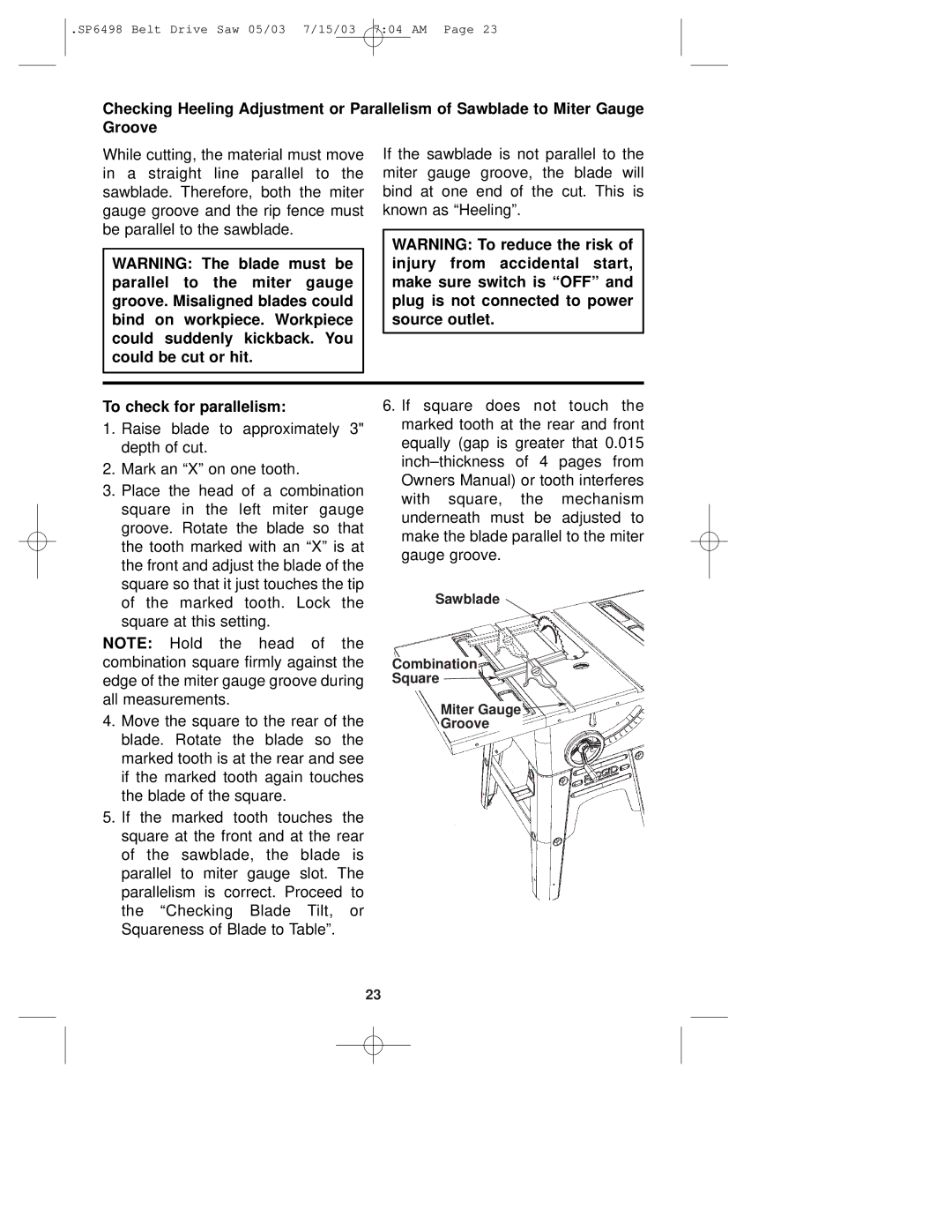
.SP6498 Belt Drive Saw 05/03 7/15/03 7:04 AM Page 23
Checking Heeling Adjustment or Parallelism of Sawblade to Miter Gauge Groove
While cutting, the material must move in a straight line parallel to the sawblade. Therefore, both the miter gauge groove and the rip fence must be parallel to the sawblade.
WARNING: The blade must be parallel to the miter gauge groove. Misaligned blades could bind on workpiece. Workpiece could suddenly kickback. You could be cut or hit.
If the sawblade is not parallel to the miter gauge groove, the blade will bind at one end of the cut. This is known as “Heeling”.
WARNING: To reduce the risk of injury from accidental start, make sure switch is “OFF” and plug is not connected to power source outlet.
To check for parallelism:
1.Raise blade to approximately 3" depth of cut.
2.Mark an “X” on one tooth.
3.Place the head of a combination square in the left miter gauge groove. Rotate the blade so that the tooth marked with an “X” is at the front and adjust the blade of the square so that it just touches the tip of the marked tooth. Lock the square at this setting.
NOTE: Hold the head of the combination square firmly against the edge of the miter gauge groove during all measurements.
4.Move the square to the rear of the blade. Rotate the blade so the marked tooth is at the rear and see if the marked tooth again touches the blade of the square.
5.If the marked tooth touches the square at the front and at the rear of the sawblade, the blade is parallel to miter gauge slot. The parallelism is correct. Proceed to the “Checking Blade Tilt, or Squareness of Blade to Table”.
6.If square does not touch the marked tooth at the rear and front equally (gap is greater that 0.015
Sawblade
Combination
Square ![]()
![]()
Miter Gauge ![]()
Groove
23
